Memo from your future self: The worst part about keeping your presentations up to date is, of course, making sure the links haven't rotted through several website redesigns…
Excellence At Documentation
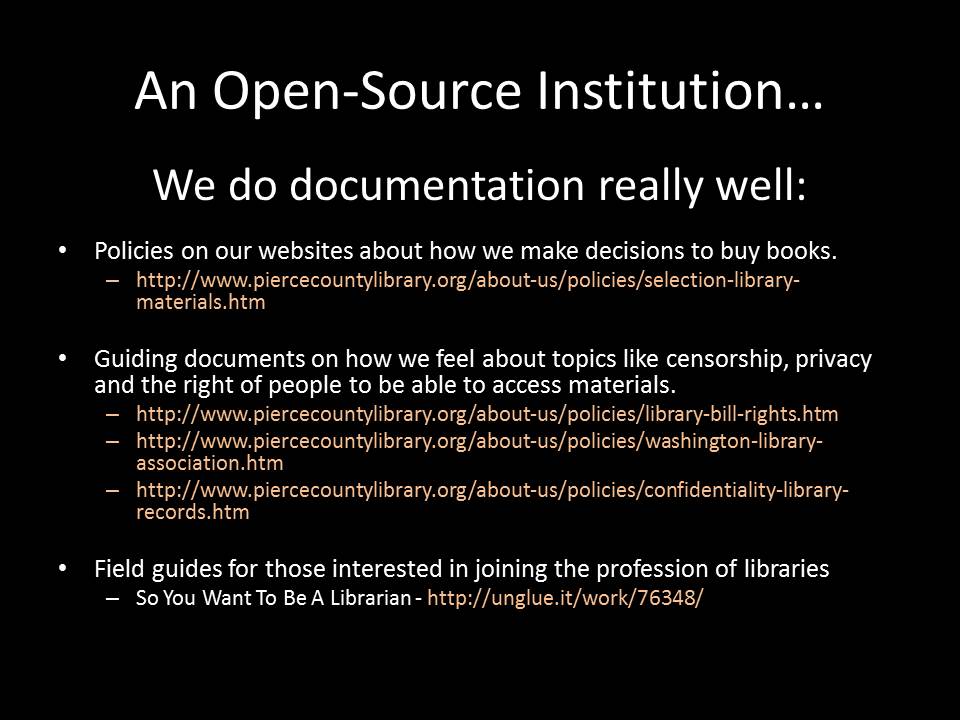
The original title for this presentation was going to be "The Public Library Is An Open Source Institution", and I was going to loudly and happily proclaim that we're transparent and accountable and just about everything we do, we publish the methods for so that if anyone wanted to replicate a public library, they could do so, with enough time and resources.
For example, want to know how we choose what materials are going to be stocked in a library? Here, take a look at Pierce County Library System's Selection Policy.
Would you like some of our core guiding documents? Have the American Libarary Association Library Bill of Rights and the Washington Library Association's Intellectual Freedom Statement. That should give you an idea on how to act, and if anything's confusing, there's always plenty of support documentation on the Web.
How should we treat privacy issues? Pierce County Library System has a policy for that, too.
We even offer materials about making decisions on whether or not someone to join the library profession.
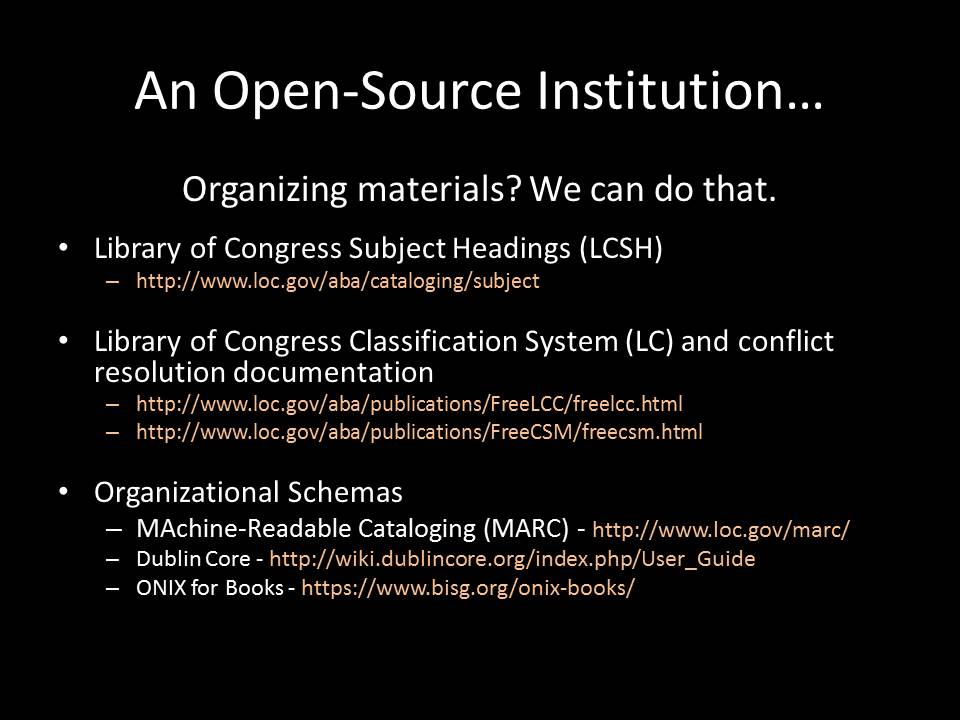
But what if you want to create your very own library? Well, if you want to organize your library by various subjects, like the Library of Congress's Subject Headings, you can do that. They're available for free.
The Library of Congress Classification System is currently freely available, so that you can organize your shelves according to an established and complete classification scheme. The Library of Congress even provide some useful rules and interpretations on how to resolve conflicts and where to put things.
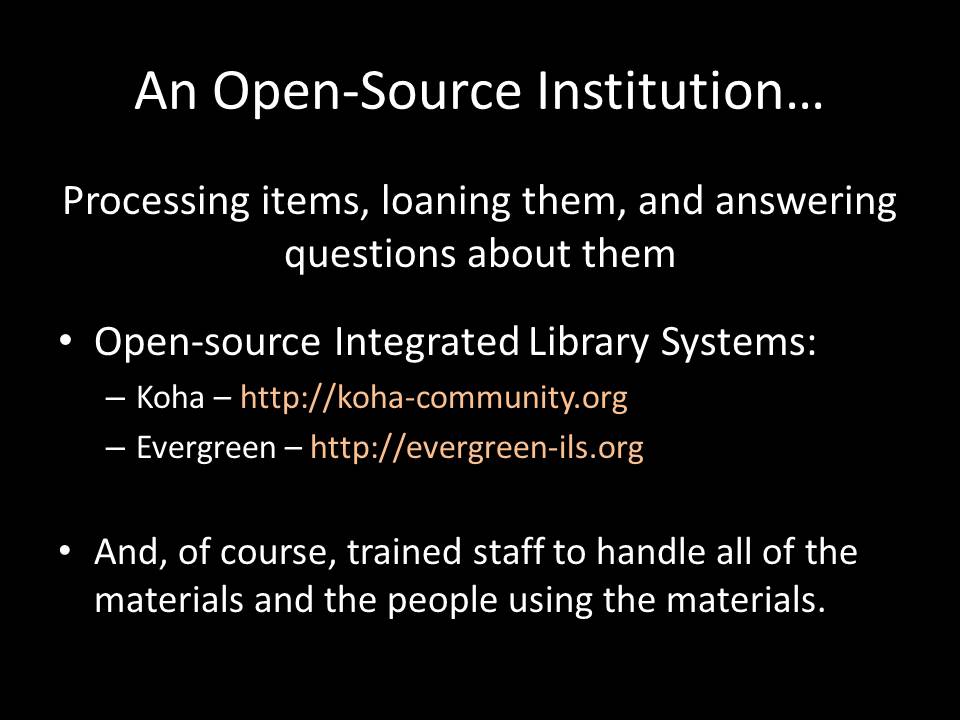
And you can use an Integrated Library System (ILS) that can handle many of the functions related to materials, and people, using standards like MARC, Dublin Core, or BISAC to create records that computers and servers can handle.
Evergreen or Koha are both open-source ILS that provide functions to catalog and check out materials, register people, and search for things that are in the library or the community.
With the right degree, you can be trained as a librarian, or hire some, so that all of the things you've built have staff to maintain them and answer questions and such things. Presto, instant library, yes?
Well…
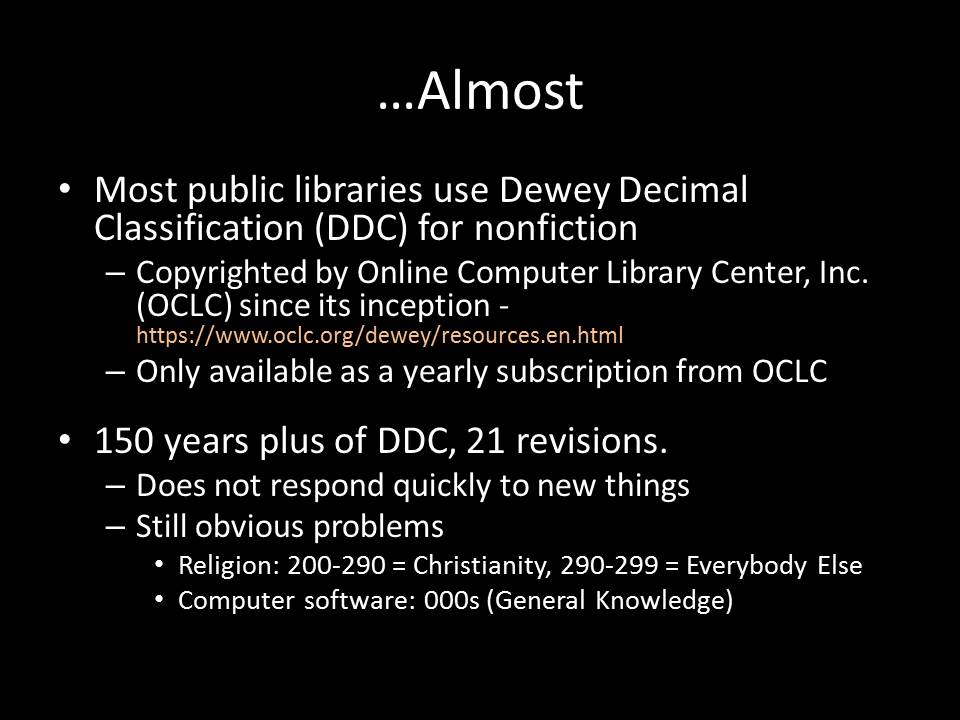
What about the Dewey Decimal Classification (DDC), the system that most people in a public library are used to, rather than the significantly more academically-inclined LC system? The Dewey Decimal Classification is under copyright to OCLC (Onlince Computer Library Center), and they will happily tell you that it always has been. If you want to know how the Dewey Classification works and to be able to use it correctly, you're going to have to pay for it. In a subscription. Worse, the DDC has been with us for about 150 years and has put out 23 releases, which officially makes its update schedule slower than Debian Linux. We're paying for a system that doesn't respond quickly to new things, and doesn't reconfigure itself when serious problems are pointed out with its structure. For example, ranges 200-290 in the DDC are almost exclusively devoted to Christianity, leaving a tenth of the possible ranges available for other religious belief systems. Computers and technology weren't around when the DDC first came into existence, so they have all been shoehorned into the 000 range, under "General Knowledge".
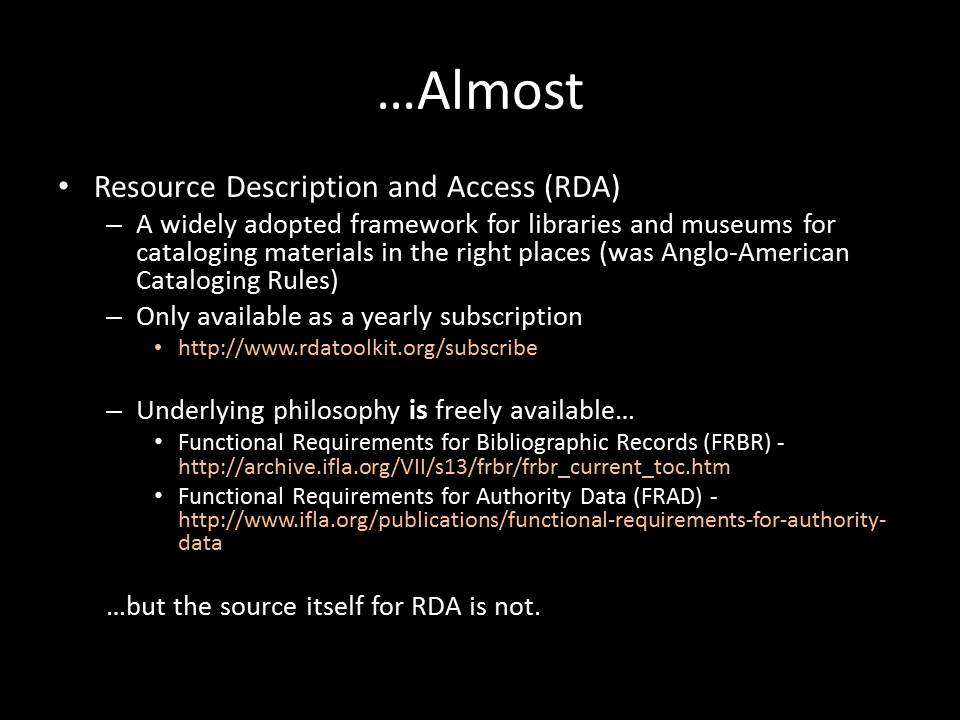
The ideas underlying that framework, including FRBR – Functional Requirements for Bibliographic Records - and FRAD – Functional Requirements for Authority Data - are available for free as published specifications, but the actual RDA itself is going to cost you money.
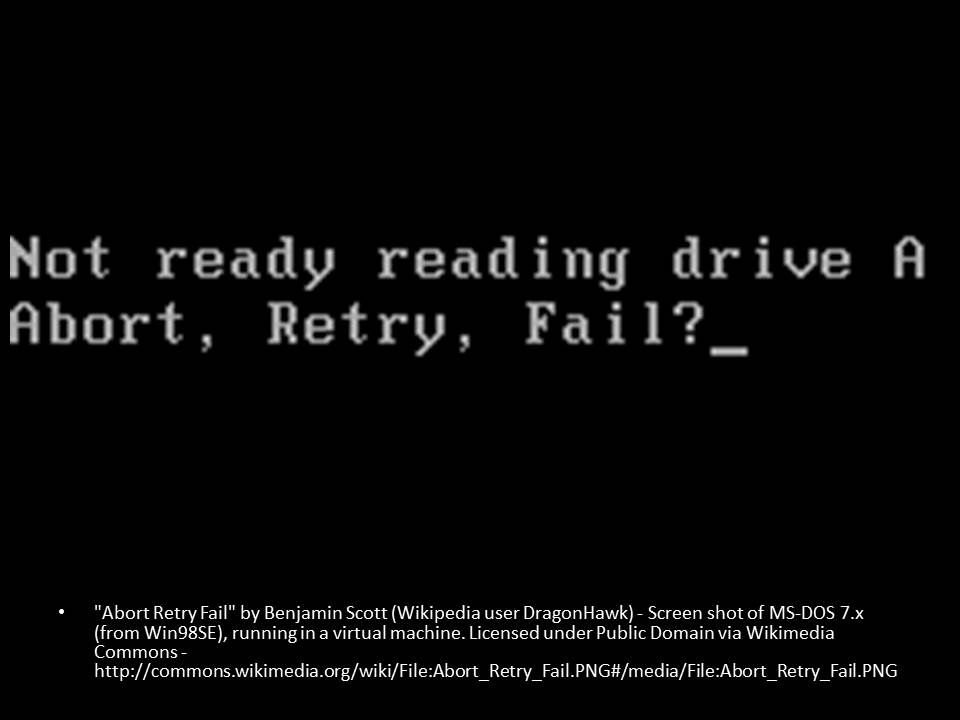
So, that whole idea about the library being completely open-source, such that someone could recreate a fully-functioning one with the right people, source code, and training?
To put it succinctly, FAIL.